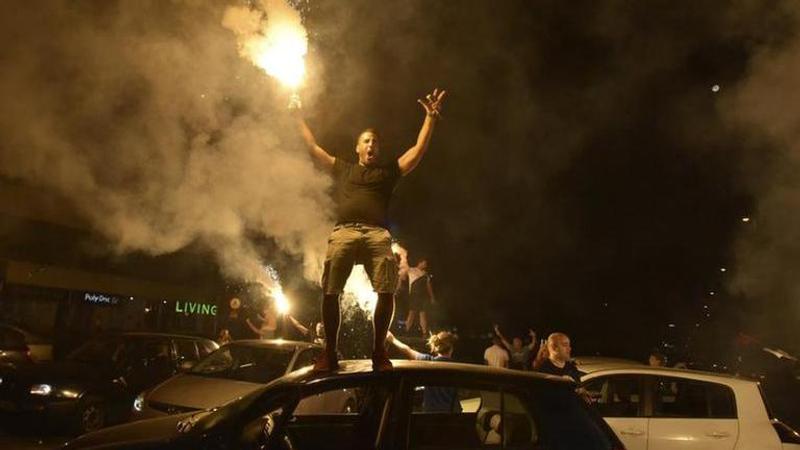Published 16:20 IST, August 31st 2020
Official tally confirms close call in Montenegro election
A preliminary official tally Monday of Montenegro’s weekend parliamentary election has confirmed that the pro-Western party that has ruled the country for 30 years has won the most votes, but a coalition of three opposition groupings might still grab power.

Advertisement
A preliminary official tally Monday of Montenegro’s weekend parliamentary election has confirmed that the pro-Western party that has ruled the country for 30 years has won the most votes, but a coalition of three opposition groupings might still grab power.
The Democratic Party of Socialists took around 35% of the ballots, followed by the main pro-Serb and pro-Russia rivals, For the future of Montenegro, with nearly 33%, according to the state election authorities.
Two other opposition groups came next with around 12% and 5% respectively. They were followed by smaller parties and those run by ethnic minorities, according to official results after nearly all ballots were counted.
It is unclear when the final distribution of seats in the 81-member parliament will be announced. But it is clear the governing majority could be very slim and hinge on one or two mandates. Montenegro's opposition parties have already declared victory and announced a coalition that would oust the DPS, which has ruled Montenegro since the 1990s.
The party and its leader, Montenegrin President Milo Djukanovic, has been a key Western ally in pushing the volatile Balkans toward Euro-Atlantic integration. Djukanovic defied Russia in 2017 to lead his country into NATO after gaining independence from much-larger Serbia in 2006.
Known as the longest-serving European leader, Djukanovic also has faced accusations of corruption, autocracy and criminal links.
The election on Sunday was marked by a dispute over a law on religious rights that is staunchly opposed by the influential Serbian Orthodox Church. The issue has fueled divisions in the nation of 620,000 people that is split over relations with the West and traditional Slavic allies Serbia and Russia.
The main opposition alliance, For the Future of Montenegro, has advocated stronger ties with Serbia and Russia, and backed church-led protests against the religion bill. A more moderate group and a smaller, liberal party are likely future coalition partners.
Djukanovic said late on Sunday that his party is ready to acknowledge any election outcome. He expressed hope that the future government will keep Montenegro on the path toward joining the European Union.
Opposition leaders said they want to unify the divided nation by forming an expert government that would lead the country in the next two years.
Months of church-led protests against the property bill have raised tensions and fears of potential unrest during and after the election on Sunday but no major incidents were reported as politicians urged voters to remain in their homes.
16:20 IST, August 31st 2020




